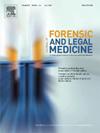加纳初级警察的法医学知识和认知
IF 1.2
4区 医学
Q3 MEDICINE, LEGAL
引用次数: 0
摘要
法医学在刑事司法管理中至关重要,它的成功实施有赖于执法部门的贡献。全球报告表明,知识和感知对这些机构使用法医技术有重大影响。在加纳等法医专业知识有限的许多发展中国家,警察往往既是犯罪现场的管理者,也是第一响应者。本研究采用自我管理问卷的横断面调查,评估初级警官对法医学的知识和认知。从阿散蒂地区随机抽取的180名初级警官中收集了回答。调查结果表明,只有14%的警官接受过正式的法医学教育,而37%的警官参加过法医学培训。此外,54%的警官表示,他们在工作中从未使用过任何法医程序。然而,大多数警员(99%)对法医学持积极态度,并主张增加培训机会。研究还发现,服务年限、教育程度和单位隶属关系对警官的法医学知识有显著影响。此外,法医科学的实际应用被发现在塑造他们对该领域的看法方面发挥着至关重要的作用。研究结果表明,尽管正规教育和培训水平较低,但加纳的大多数初级警官对法医科学持积极态度。因此,建议为同时担任犯罪现场调查员的警官提供继续接受法医学教育和培训的机会。本文章由计算机程序翻译,如有差异,请以英文原文为准。
Knowledge and perception of forensic science among junior police officers in Ghana
Forensic science is crucial in criminal justice administration, and relies on the contributions of law enforcement for its successful implementation. Global reports suggests that knowledge and perception significantly influence the use of forensic techniques by these agencies. In many developing countries like Ghana, where forensic expertise is limited, police officers often serve as first responders as well as crime scene managers. This study evaluated the knowledge and perception of forensic science among junior police officers through a cross-sectional survey using self-administered questionnaires. Responses were gathered from 180 junior police officers who were randomly selected from the Ashanti region. The findings indicated that only 14 % of the police officers had received formal forensic education, while 37 % have participated in training in forensic science. Furthermore, 54 % of the officers indicated that they have never employed any forensic procedures in their work. However, majority of the officers (99 %) had positive perception of forensic science, and advocated for enhanced training opportunities. The study also revealed that years of service, educational qualification, and unit affiliation significantly impacted the officers’ knowledge of forensic science. Additionally, the practical application of forensic science was found to play a vital role in shaping their perceptions of the field. The findings indicate that despite the low levels of formal education and training, majority of junior police officers in Ghana, view forensic science positively. It is therefore recommended that officers who also serve as crime scene investigators are offered opportunities for continuous education and training in forensic science.
求助全文
通过发布文献求助,成功后即可免费获取论文全文。
去求助
来源期刊

Journal of forensic and legal medicine
MEDICINE, LEGAL-
CiteScore
2.70
自引率
6.70%
发文量
106
审稿时长
57 days
期刊介绍:
The Journal of Forensic and Legal Medicine publishes topical articles on aspects of forensic and legal medicine. Specifically the Journal supports research that explores the medical principles of care and forensic assessment of individuals, whether adult or child, in contact with the judicial system. It is a fully peer-review hybrid journal with a broad international perspective.
The Journal accepts submissions of original research, review articles, and pertinent case studies, editorials, and commentaries in relevant areas of Forensic and Legal Medicine, Context of Practice, and Education and Training.
The Journal adheres to strict publication ethical guidelines, and actively supports a culture of inclusive and representative publication.
 求助内容:
求助内容: 应助结果提醒方式:
应助结果提醒方式:


